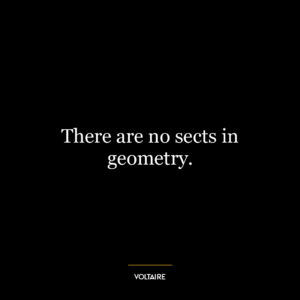This quote is an expression of Voltaire’s views on the dual nature of justice and the universe. The first part, “God has punished the knave,” implies that moral justice, represented by God, punishes wrongdoers. The knave, a dishonest or unscrupulous person, is punished for their misdeeds, reflecting the belief in a moral order to the universe where wrongs are righted.
The second part, “and the devil has drowned the rest,” suggests a darker, more chaotic aspect of the universe. It implies that even innocent people can fall victim to misfortune, represented by the devil, reflecting the randomness and cruelty that can exist in the world.
Together, these two parts portray a world where justice and chaos coexist, where good and bad things happen without clear reasons. It’s a recognition of life’s complexity, where not everything can be neatly categorized as good or evil, and where outcomes are not always fair.
In today’s world, this quote could be interpreted as a commentary on the unpredictable nature of life and the fallibility of human justice systems. Despite our best efforts to create a fair society, injustices still occur, and innocent people still suffer. This could be seen in various societal issues like systemic racism, income inequality, and environmental degradation.
In terms of personal development, this quote could serve as a reminder to strive for fairness and justice in our own actions, while also acknowledging that we can’t control everything. It encourages resilience in the face of life’s unpredictability and a commitment to personal integrity, even when the world seems chaotic and unfair. It could also serve as a call to action to challenge and change the systems that allow injustices to persist.













